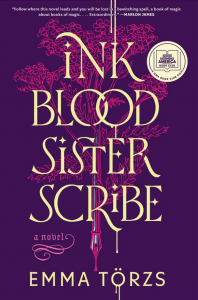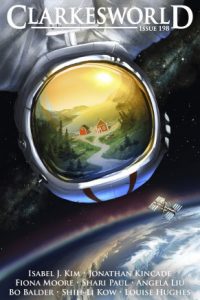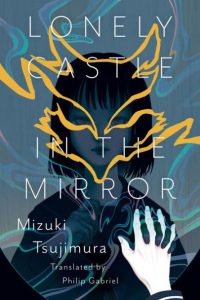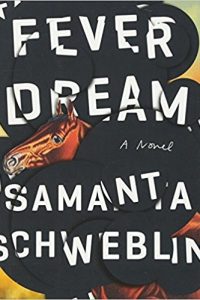Alexandra Pierce Reviews Ink Blood Sister Scribe by Emma Törzs
 Ink Blood Sister Scribe, Emma Törzs (William Morrow 978-0-06325-346-9, $30.00, 416pp, hc) Cover by Elina Cohen.
Ink Blood Sister Scribe, Emma Törzs (William Morrow 978-0-06325-346-9, $30.00, 416pp, hc) Cover by Elina Cohen.
Sometimes I wonder whether creatives are reaching a point where all the possible ways that magic and its uses can be explored have already been explored. And then I read books like Emma Törzs’s debut novel Ink Blood Sister Scribe, and I realise that nope, there is definitely still scope for new and imaginative and twisty magics.
In Törzs’s world, spells are created by writing out convoluted instructions, which will work only if they are written in ink made from the blood of a few select people. The spells, once written, cannot then be read aloud by these scribes; indeed, many aspects of magic have no impact on them. While most people in the world have no awareness of magic, there are also those who can hear the magical books once they are created – which is of enormous benefit if, for instance, you want to go about amassing a collection of such manuscripts.
Half-sisters Esther and Joanna grew up in a house with a collection of magical books that have been written over many centuries., and their relationship is at the center of the story. Joanna can hear the books with what she calls her ear-within-an-ear; Esther cannot. Joanna works with their father Abe to make wards that prevent anyone from being able to see or find the house; they work on everyone except Esther, who left home anyway at age eighteen, putting both physical and emotional distance between herself and her family. Now in their 20s, Joanna has remained in the family home, protecting the book collection, while Esther has never settled down. Indeed, choosing to stay on as an electrician for another summer after already doing a summer and winter in Antarctica is the longest she’s ever stayed in one place. Which is a problem: she knows that she is putting herself at risk by staying for more than a year, having been warned never to do so by her father. She hopes that the remoteness of Antarctica will keep her safe… but, of course, it doesn’t.
Also not safe is Nicholas: very wealthy, very sheltered, and working for the Library – an enormous collection of magical books owned by his uncle, who makes his money primarily by hiring out Nicholas’s services to very, very wealthy people. Nicholas is one of those rare people whose blood makes the ink that enables magic. Despite all of his privilege, Nicholas knows he isn’t necessarily safe; he’s already been kidnapped once, as a teen, and lost an eye in the process. As he discovers, however, it’s not necessarily the people outside of his little bubble that he needs to be concerned about.
Plans that were cautiously begun decades earlier start to come to fruition, and a narrative that starts off slowly – introducing the characters and exploring the ideas of magic, but most especially exploring various relationships – starts gathering speed about a third of the way through. Esther leaves Antarctica and Nicholas leaves the Library; they each find assistance in unexpected places, and eventually find each other as well. The story comes back around to Esther and Joanna’s childhood home, where secrets are uncovered and drama ensues. The final denouement is satisfying without tying off all the loose ends.
Törzs creates believable characters and, even more than that, deeply relatable family situations. Her magic system is clever, and while never completely explained, that’s not really a problem – the most knowledgeable of the characters themselves don’t really know what they’re doing. There’s enough detail to see that Törzs has thought through the processes and implications, and the internal logic is sound. Because of the process, magic is incapable of having a global impact, meaning that keeping the story at an individual and family level is entirely appropriate.
This is an immensely enjoyable debut, and I look forward to more.
Alexandra Pierce reads, writes, podcasts, cooks and knits; she’s Australian and a feminist. She was a host of the Hugo Award winning podcast Galactic Suburbia for a decade; her new podcast is all about indie bookshops and is called Paper Defiance. Alex has edited two award-winning non-fiction anthologies, Letters to Tiptree and Luminscent Threads: Connections to Octavia E Butler. She reviews a wide range of books at www.randomalex.net.
This review and more like it in the July 2023 issue of Locus.
 While you are here, please take a moment to support Locus with a one-time or recurring donation. We rely on reader donations to keep the magazine and site going, and would like to keep the site paywall free, but WE NEED YOUR FINANCIAL SUPPORT to continue quality coverage of the science fiction and fantasy field.
While you are here, please take a moment to support Locus with a one-time or recurring donation. We rely on reader donations to keep the magazine and site going, and would like to keep the site paywall free, but WE NEED YOUR FINANCIAL SUPPORT to continue quality coverage of the science fiction and fantasy field.
©Locus Magazine. Copyrighted material may not be republished without permission of LSFF.






